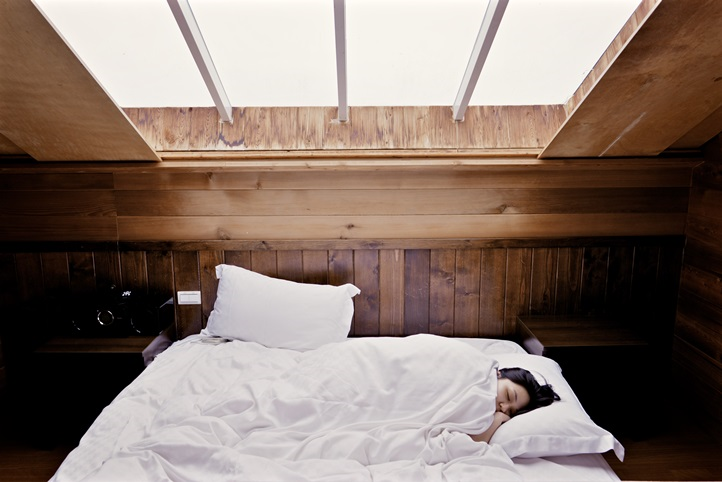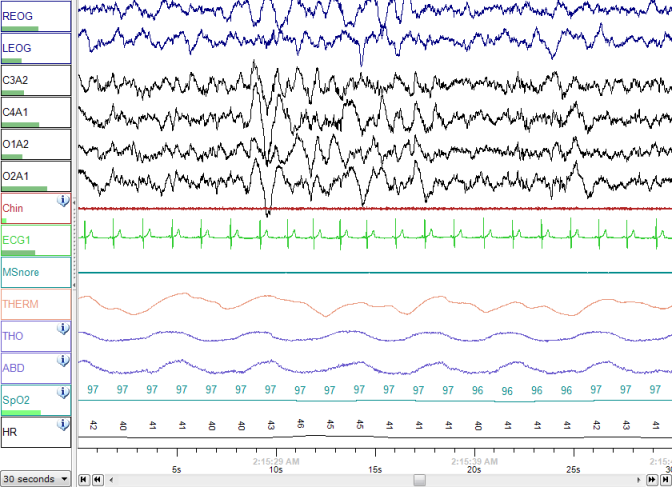The Days Are Just Too Short
It’s really hard for an average grownup to get 8 hours of sleep since that would leave us with only 16 hours, while the majority of those are being spent at work, in class, or studying.
Many of us say that day is simply too short. Well, the length of the day is not going to change. If we want to be as healthy and productive as we possibly can we’ll simply have to plan our days in a way that will give us enough time to sleep.
Sleep is the golden chain that binds health and our bodies together.– Thomas Dekker
Or, we can choose to cut down on our sleeping hours and face the consequences. That’s right; there are consequences to not getting enough sleep. Most of us aren’t even aware of them. We know that we’re a bit more tired, especial towards the end of the day, but there is more to it.

How much sleep do we need?
We’re not talking about your opinion but what is the number that has been determined by scientists based on gathering experimental data. The answer is not always that simple since not every sleep is the same, but scientists and doctors recommend it to be at least 8 hours long.
A Closer Look Into Sleep
As we said, the quality of sleep is not always the same. Scientists use a process called the sleep-wake cycle to determine it. The two main parts of the sleep-wake cycle are slow-wave sleep (aka deep sleep) and “rapid eye movement” or REM sleep.
Sleep is the best meditation.– Dalai Lama
During deep sleep our blood pressure drops, breathing becomes steadier, and the brain gets less responsive to external stimulation. THIS PHASE IS CRUCIAL FOR BODY REGENERATION.
During the REM phase, our brain reorganizes information, this when dreams occur. This phase is responsible for clearing irrelevant information, boosting memory by connecting the past 24 hours experiences to our previous experiences, and facilitating learning and neural growth.

What will the lack of sleep do to you?
Let’s take a closer look at the consequences we’ll be forced to face if we choose to disregard our body’s need for sleep. Those consequences have been researched in further detail by researchers at the University of Pennsylvania and Washington State University.
To conduct a 14-day study they took 48 healthy men and women who generally sleep from 7 – 8 hours per night and divided them into four groups. The first group had to stay up for three days straight, the second group was allowed to sleep 4 hours per night, the third group slept six hours per night and the fourth group slept eight hours per night.
The subjects from the fourth group showed no cognitive decreases, motor skill declines, or attention lapses. However, the subjects who had 4 hours and 6 hours of sleep per night displayed a steady decline of their abilities with each passing day.
This showed that sleep debt is a cumulative issue. They found out that if you sleep for 6 hours per night for two weeks straight, your mental and physical performance declines to the same level as if you had stayed awake for 48 hours in a row.
The one thing that is everything and requires nothing is sleep.– Tony Horton
Moreover, this study showed that individuals who suffer from cumulated sleep debt don’t notice their own performance declines.
Not getting enough sleep will also accelerate the aging process. If you don’t give your body enough time to regenerate it simply wears off faster. Moreover, it is important not to reduce sleep as we grow older since the percentage of sleep spent in the deep sleep phase decreases.
Can you make up for the lost hours of sleep?

It turns out that short-term debt of sleep can be compensated with short naps (20 – 30 min). Your body and brains know when you didn’t get enough sleep and make sure you spend more time in REM and deep sleep phases.
If you want to recover after a night of little sleep, you need to sleep longer than usual the next night.
In the case of the long-term lack of sleep, this won’t work anymore, your body just won’t be able to make up for the deficit of sleep. In that case, it is really important to change your ways as soon as possible.
A good laugh and a long sleep are the two best cures for anything.– Irish proverb
Sleep & Recovery After Workout
As we mentioned above, the deep sleep phase is the one responsible for body recovery. On average, we spend around 20 % (this percentage declines with ages) of the sleep time in that phase. If you sleep 8 hours, that gives you a total of 1 h and 36 min. Luckily our sleep occurs in periods, which means there is no way to get deep sleep even if you sleep less than 8 h.
However, 1 h and 36 min are really not that much, which means that every minute counts. For instance, if you sleep only 6 hours, your body will recover to 75 percent. If you do this 5 nights in a row, each night recovering to only 75 percent (0.75 x 0.75 x 0.75 x 0.75 x 0.75 = 0.24), your overall recovery after 5 days will be at 24 percent.
By sleeping less than 8 hours you won’t give your body enough time to fully recover, which will reduce your physical abilities and energy level.

Do not underestimate the importance of sleep! Do everything you can to arrange your life in a way that will allow you 8 hours every night. Sure, there will be nights when you won’t be able to get enough sleep. It is super important to get more than 8 hours of sleep the following night or take a nap during the day to make up for the lost time the night before.
How to improve the quality of sleep?
15 easy-to-implement tips that are proven to significantly improve the quality of sleep:
- Follow the sun – the best quality of sleep can be attained during the night.
- Be consistent – to get the most out of your sleep, you need to go to bed and wake up at approximately the same time every day.
- No food & alcohol at least 2.5 hours before bed.
- Avoid caffeine for at least 7 hours before going to sleep.
- No screens at least 1 hour before bed.
- Establish a cooler atmosphere – the ideal sleeping temperature is approx. 65 degrees Fahrenheit (18.3 degrees Celsius).
- Make bedroom completely dark – eliminating all sources of light (even adapters) and blinding your windows is also very important.
- A bedroom should be only for sleep & love-making – human brains react in certain ways in certain environments. If you program your brain so it knows that your bedroom is only for sleep or sex, it will automatically be more relaxed there and you’ll get much better sleep.
- Use natural smells that will help you relax – you can place certain herbs, flowers, or essential oils in your bedroom to help you relax deeply. Lavender and rosemary are my favorites. We can highly recommend Insomnia Treatment by Amoils.
- Invest in your bed – having a high-quality organic mattress and bedding (especially pillow) can make a huge difference. I would recommend natural or at least highly breathable materials.
- Do some sort of exercising daily – it has been scientifically proven that daily exercising contributes to better sleep quality.
- Focus on healthy foods – eating fiber-rich foods and avoiding dairy, red meat, sugars, and processed food as much as possible, will also improve your sleep.
- Manage your stress – chronic stress is extremely dangerous and it can eat away precious hours of your sleep. One of the best ways to get on top of it is to start practicing meditation. Just 5 minutes of meditation before you go to sleep could make the world of difference. If you want to learn how to meditate, this is a great place to start (+ there is a gift waiting for you).
- Create your evening routine – having a special evening routine (t.i. a set of habitual sleep-quality inducing habits) is one of the best methods to significantly improve the quality of your sleep. Top suggestions include meditation, gratitude practice, visualization, cuddling, some light reading, relaxing audios, etc.
- Using certain audio recordings or just white/pink noise can also help with sleep quality.
Here you have it. Let there be no excuses. Apply the knowledge attained above and do your best to get at least 7 hours of high-quality sleep every night.
Good night!
